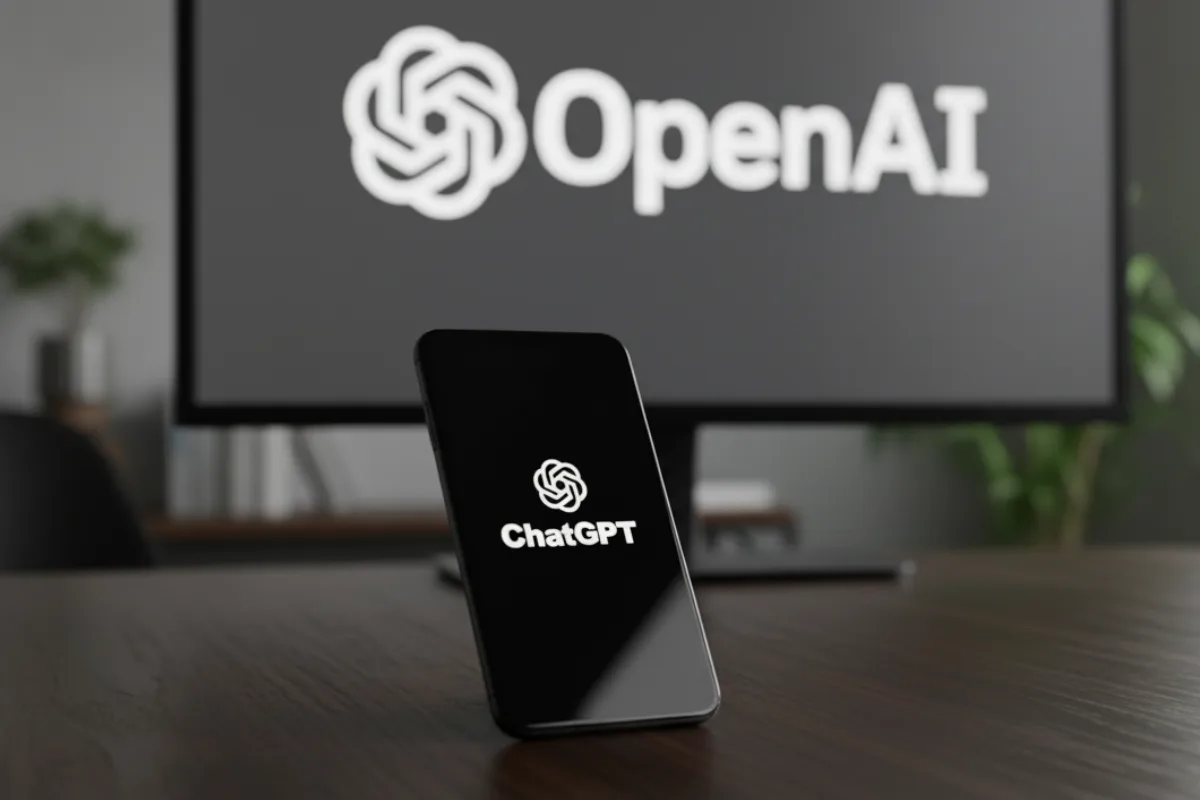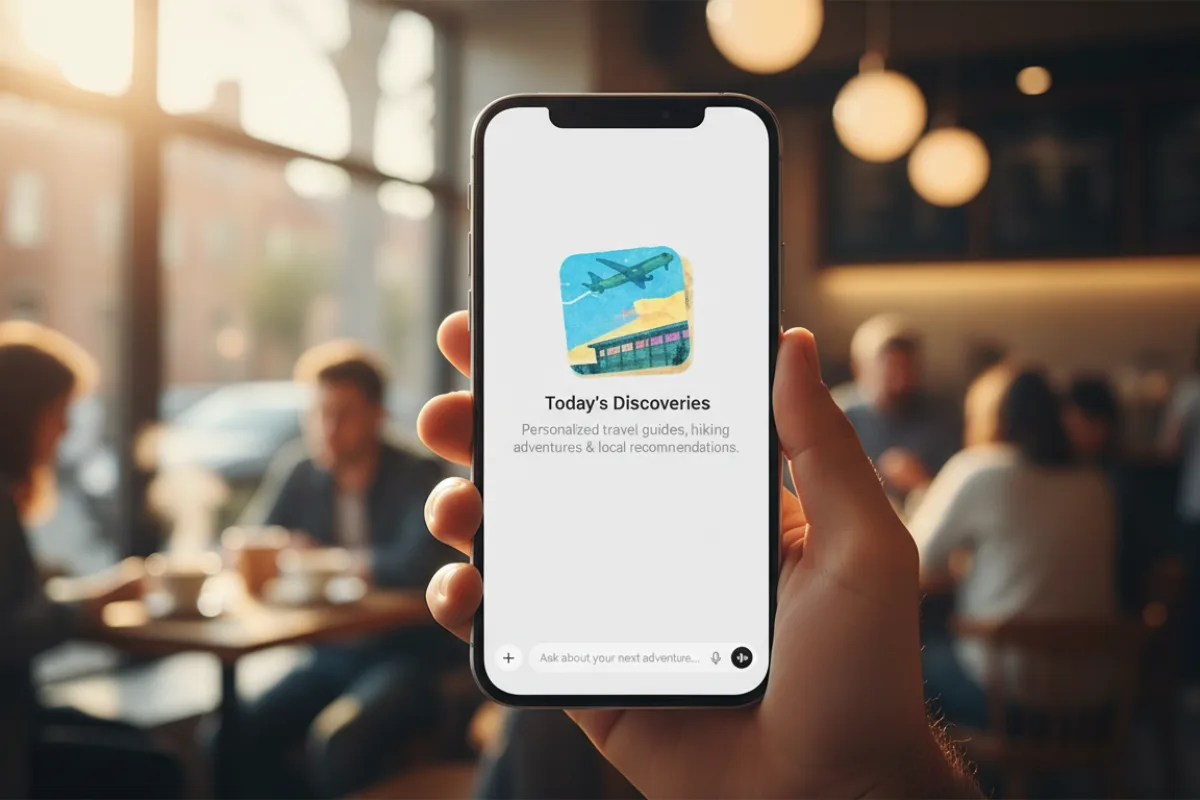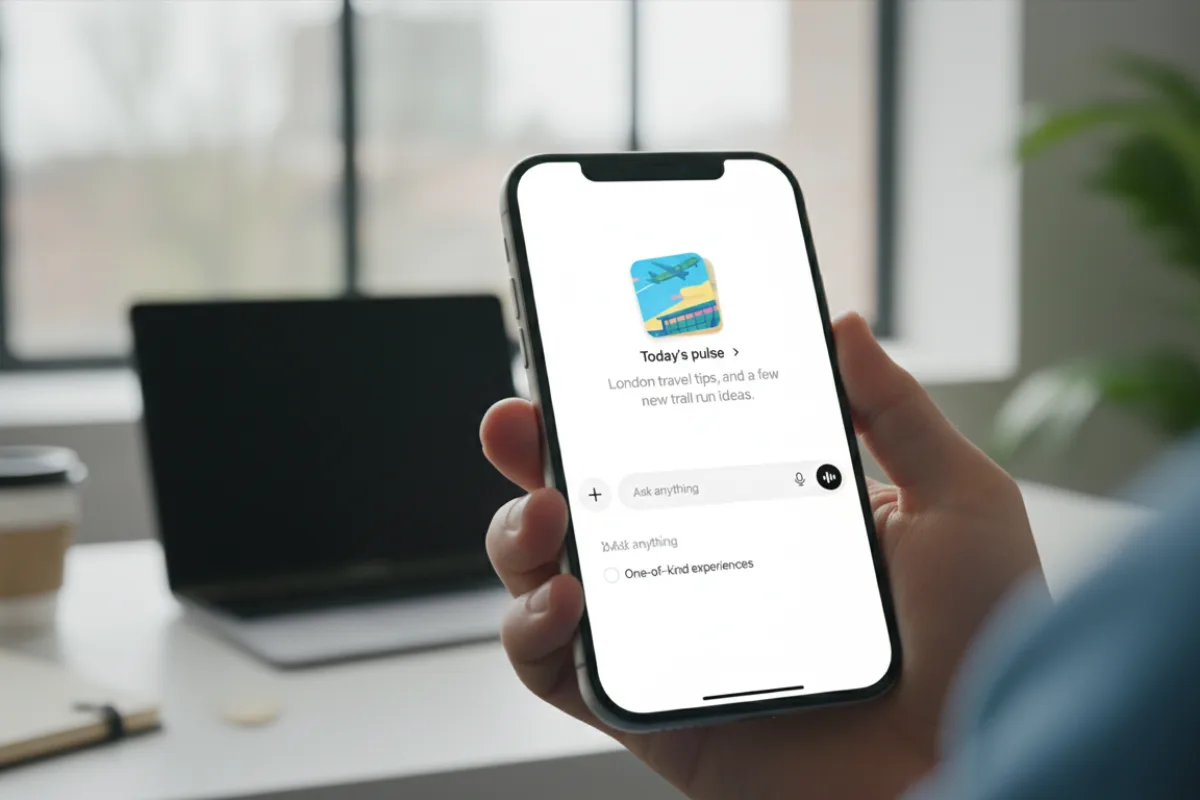Introduction
ChatGPT Pulse is OpenAI’s new proactive daily-briefing feature that wakes up overnight and delivers a short, personalized set of updates to Pro subscribers. The preview, available now on mobile to Pro users at $200/month, compiles research from your chats, Memory and opt-in app connectors (calendar, email) into scannable visual cards so you can start the day informed.
Why this matters:
Pulse marks a shift from reactive chat to a proactive AI assistant model. For professionals who want a one-stop morning summary — news, schedule highlights, task nudges and custom recommendations.
Pulse promises to replace some morning doom-scrolling with a curated briefing. It also raises privacy and data-use questions because it draws on personal chats and connected apps.
ChatGPT Pulse $200 Pro subscribers: what the feature does and how it works
OpenAI’s blog and help pages say Pulse runs asynchronous research once per day, producing 5–10 short cards you can scan or expand. Cards cover topics you care about — work priorities, travel alerts, personal goals, or topic deep dives — and are shaped by your past chats, explicit feedback and any opt-in connectors you enable. The experience is meant to be scannable: tap a card to read more or ask follow-ups.
TechCrunch and The Verge report the rollout is in preview for Pro users on mobile and is priced at $200 per month — a higher, compute-heavy tier OpenAI says is needed to support always-on, personalized research. OpenAI has signalled Pulse may expand to lower tiers later, but the company is prioritizing controlled testing in Pro first.
What “proactive” means and what it does not

Pulse does background synthesis (often overnight) rather than waiting for a user prompt. That means ChatGPT will autonomously fetch, summarize and highlight items it thinks are useful. OpenAI says Pulse outputs are private to the user and will not be used to train models for others; safety filters and limits are in place to avoid harmful feedback loops. Still, users should weigh convenience against the extra data Pulse needs.
Privacy, data connectors and safety concerns with ChatGPT Pulse
Pulse requires opt-in connectors (calendar, email, etc.) for the richest briefings. OpenAI says connectors are optional and that users can control what Pulse reads. The Verge and OpenAI’s help article note safeguards: Pulse uses your Memory and chats, and OpenAI claims it will not repurpose that content to train models for other users — a key privacy reassurance — but independent audits and clear data-handling contracts will matter to enterprises and privacy-conscious users.
Security and regulatory teams will also ask how long Pulse stores fetched content, where it’s processed, and how third-party integrations are authorized. Early adopters in corporate settings may seek enterprise controls before enabling broad rollout.
Who benefits and who should wait
Pulse targets heavy knowledge workers, managers, executives and active learners who value a curated morning briefing. It helps people who want daily situational awareness without opening multiple apps.
If you prefer granular privacy control, or if your workflow cannot tolerate background data access, you might wait until Pulse is offered with clearer enterprise tooling or lower-tier pricing.
Pricing, rollout and what to watch next

OpenAI currently limits Pulse to Pro subscribers paying $200/month during the preview. Reports suggest the company may expand access to lower tiers later, but pricing and timeline are not final.
Watch for product updates on data controls, enterprise admin features, and any regional restrictions tied to data-residency or privacy laws. Pulse’s success will depend on striking a balance between usefulness and user trust.
Verdict
ChatGPT Pulse is a clear step toward proactive AI assistants that act without a prompt. For the right user — someone who values a curated morning briefing and trusts OpenAI’s privacy promises — Pulse offers time savings and personalized context. For organisations and privacy-sensitive users, the feature raises governance questions that will shape adoption.
Frequently Asked Questions
What is ChatGPT Pulse and who can use it?
ChatGPT Pulse is a proactive daily briefing feature that delivers personalized morning updates. It is in preview for ChatGPT Pro subscribers at $200/month and currently available on mobile.
How does ChatGPT Pulse create its briefings?
Pulse synthesizes information from your past chats, Memory and any opt-in connectors (calendar, email) to generate 5–10 scannable cards each day. You can expand cards or ask follow-up questions.
Will Pulse use my data to train OpenAI’s models?
OpenAI says Pulse data remains private to the user and will not be used to train models for other users. The company also applies safety filters to outputs. Enterprises should still review contractual data protections.
How much does ChatGPT Pulse cost?
Pulse is available now in preview to ChatGPT Pro subscribers billed at $200 per month. OpenAI has not yet committed to broader pricing or rollout dates.
Can I opt out of connectors or data used by Pulse?
Yes — connectors are optional. OpenAI’s help pages state you control what Pulse reads and can give feedback to refine what the assistant prioritizes.
Author note: I’m a tech reporter who reviewed OpenAI’s announcement and coverage from TechCrunch, The Verge and Bloomberg. Pulse is in preview and priced for a compute-heavy Pro tier; I used cautious language where rollout details and enterprise features are still pending.






1 thought on “OpenAI Launches ChatGPT Pulse: $200 Pro Curates Your Morning Briefs”